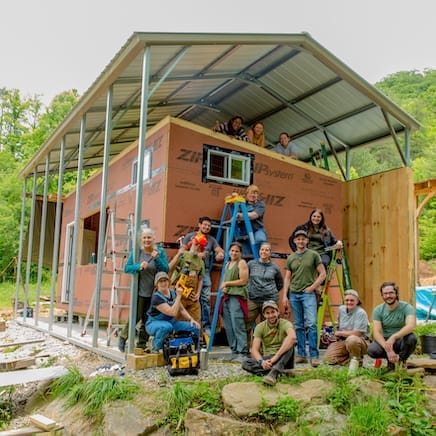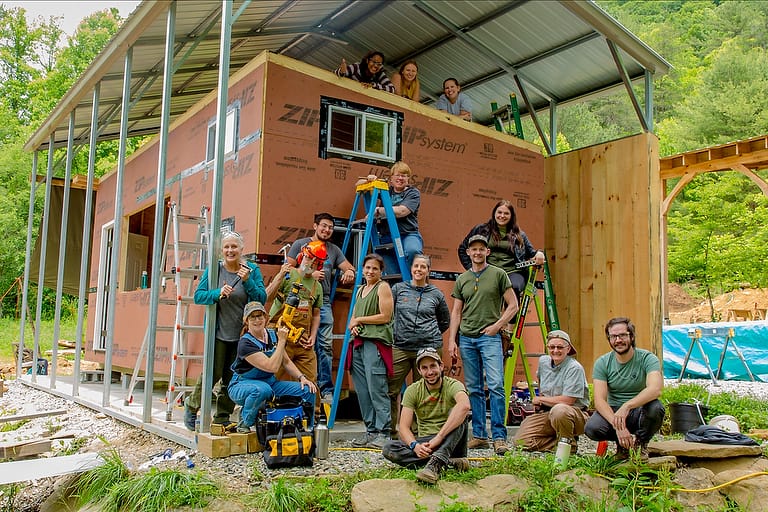On This Page
We welcome you to read through this page for a whole-picture perspective on the Tiny House Workshop. If you’re looking for specific information, you can use the following links to skip around:
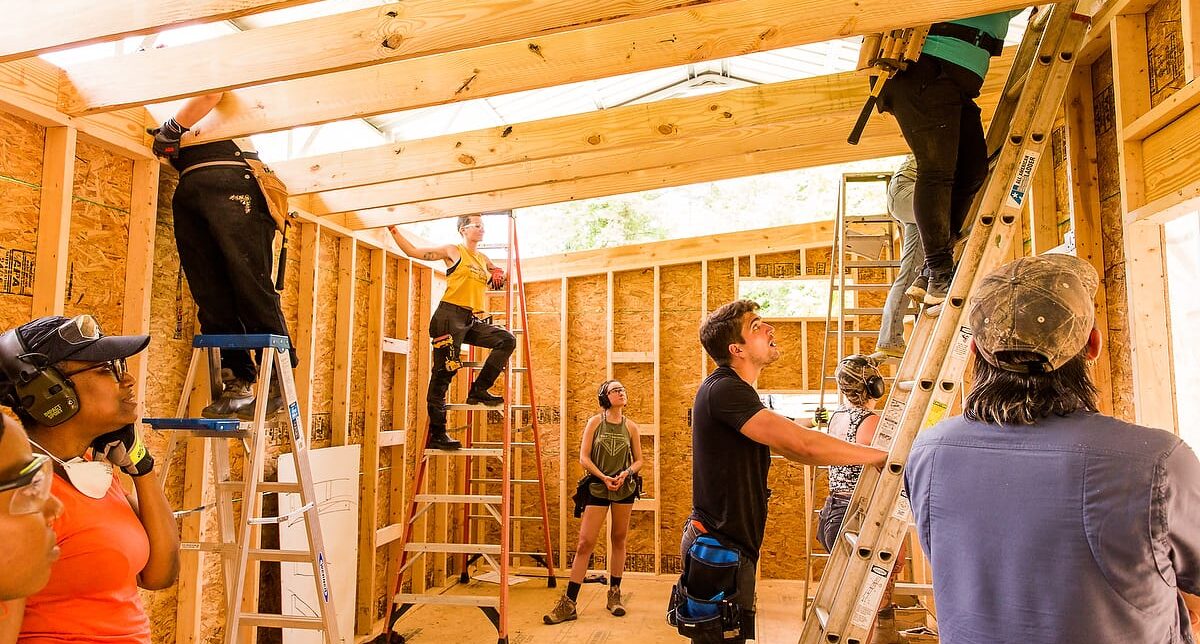
Why Join Our In-Person Tiny House Workshop?
We believe this is the most comprehensive tiny home building workshop you’re going to find. In this class, you’ll learn how to make your tiny house dreams a reality. The in-person and online portions combine to cover everything you’ll need to build your very own tiny house, from floor joists to light fixtures.
In fact, you’ll get your hands on every step of building the structure of a tiny house from the ground up, plus have lifetime access to course videos about the entire process, including design for ecological considerations, plumbing, electrical, and trim work. What’s more, you’ll do it all with a super engaged group of instructors and fellow students in a beautiful and inspiring environment.
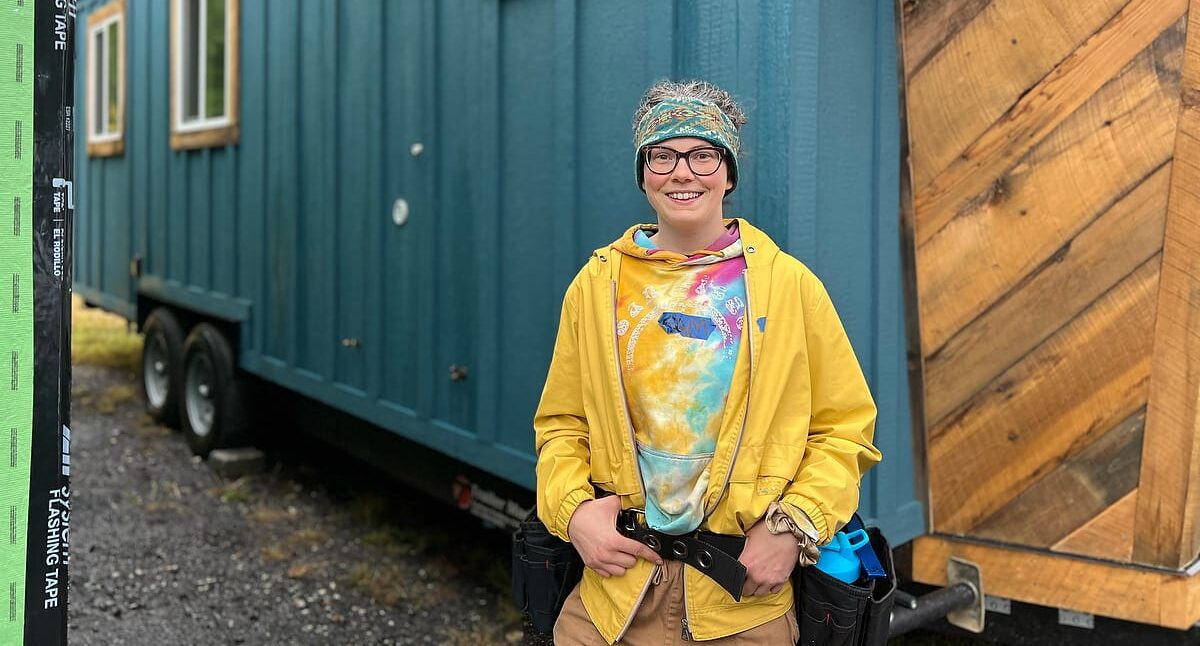
What Our Tiny House Building Workshop Students Say
scroll right to read more
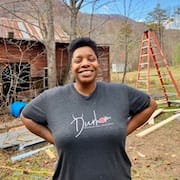
Monica
North Carolina
Lawyer
“The thing I enjoyed the most about the tiny house course was the depth of knowledge and the patience of the instructors. They are constantly answering our questions no matter how simple or complex. They have a wealth of knowledge about the best resources and brands and different building materials. And they also gave references and resources when we wanted to deepen our knowledge in the area.”
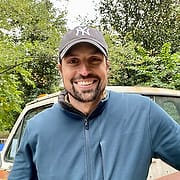
Bryan
New York
Digital Health Products Developer
“When I learned to build my own furniture, it brought an immense amount of joy that sometimes computer work doesn’t bring, and so I figured, ‘Man, if I could do that for a whole house, that would be wild!’ In the Tiny House Building Workshop, I went from zero to sixty really quick; it was a huge accelerator. “
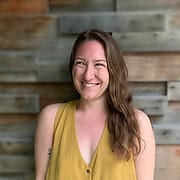
Jessie
Connecticut
Accountant
“If I had to choose one word to describe how I felt after spending a week and a half at Wild Abundance taking the Tiny House Building class I would say, ’empowered’. I felt confident during each part of the build because of the amazing instruction and guidance provided. I highly recommend this course to anyone who wishes to gain or strengthen their building knowledge or experience—you won’t regret it!”

Bill
Connecticut
Sales
“The Tiny House Building Workshop really gave me the confidence to go home and start the project I’ve had floating around in my mind for a while. Besides that, the community and friendships that formed here with our group have been, no exaggeration, life changing. If you’re thinking about doing this, I couldn’t recommend it more.”
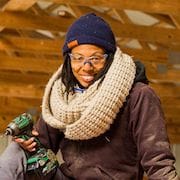
Tonika
Baltimore, MD
Program Director
“I’m the Program Manager for Black Women Build Baltimore (founded by a black woman carpenter) and I help women prepare to purchase and renovate affordable homes. I came to the Tiny House Building Workshop to learn as much as I can about building. It’s been extraordinarily empowering and exciting.”
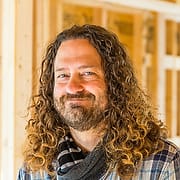
Scott
New Orleans
Coffee Shop Owner
“Wild Abundance was an amazing experience! After the class, we plan to remodel the bedroom, the bathrooms, and build a few tiny cabins.”
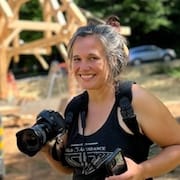
Sarah
North Carolina
Photographer
“I loved the opportunity to get to dip into so many different skills and techniques. It gave me insight into which things I feel confident I can take on myself, and which things like electrical or plumbing that I might decide to contract out. The class is very team-based and so it feels very inviting and relaxing to be a learner here.”

Honey
World Traveler
Massage Therapist
“I’m so satisfied with my decision to take the Tiny Home Workshop at Wild Abundance this year. The culture of building is complex and rich, and even though my dad is a General Contractor, it never felt accessible to me until I took this building class. I’m grateful to have connected with such knowledgeable and patient teachers who are so willing to share their extensive experience and kindness.”
Disaster Relief Work and A Solution for the Housing Crisis: Learn How to Build a Tiny Home
We are in the midst of a housing crisis in the United States. There’s simply not enough housing to go around. In our local area, Hurricane Helene has turned up the heat on this crisis by displacing thousands of people. Thanks to donations made to the Wild Abundance Disaster Relief Fund, most of the tiny house shells built during the 2025 tiny house classes will go to flood victims at no or very low cost.
Most of the tiny houses constructed during our 2025 tiny house building classes are going to flood victims.
Taking our Tiny House Workshop can empower you to be part of the solution to the housing crisis and an asset to relief efforts. You’ll be able to build a tiny house for yourself, help friends with building projects, and join those repairing damaged housing and building new housing. In the current environment, building efficient, small homes that can house people is an important act.
You’ll learn carpentry, best building practices, design, utilities and systems, legal ramifications, how to budget your tiny or not-so-tiny house, and more. Getting this information out to as many people as possible is more important than ever.
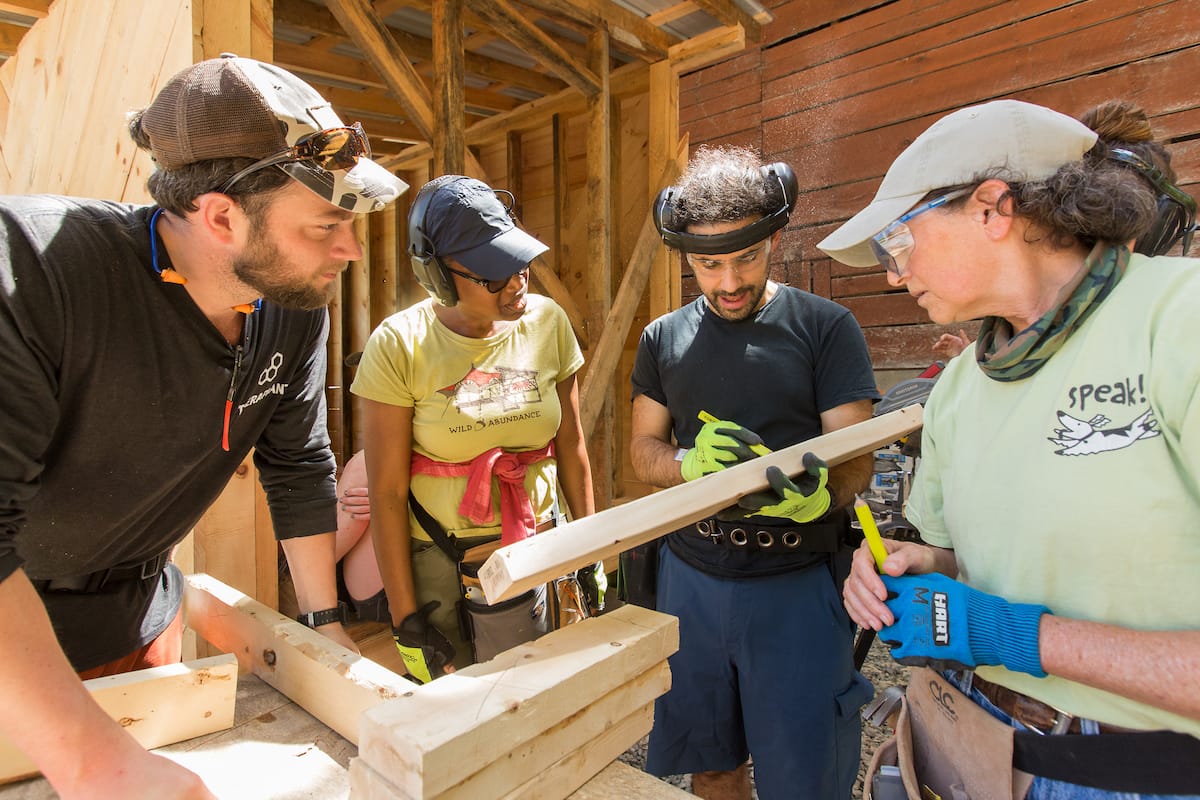
This Tiny Home Workshop is Something Special
Between the online and in-person content, you can expect to learn the nitty gritty details of how to build a tiny home. This comprehensive tiny home workshop even includes the basics of plumbing and electrical, plus how tiny homes can fit into community living.
This is not a three-day overview or intro class. On the contrary, with the online content and in-person practicum combined, it’s an all-encompassing program that will not only get you ready to build your own tiny house, but also prepare you to create your own design, source the best materials, and understand more deeply how tiny homes can fit into your life.
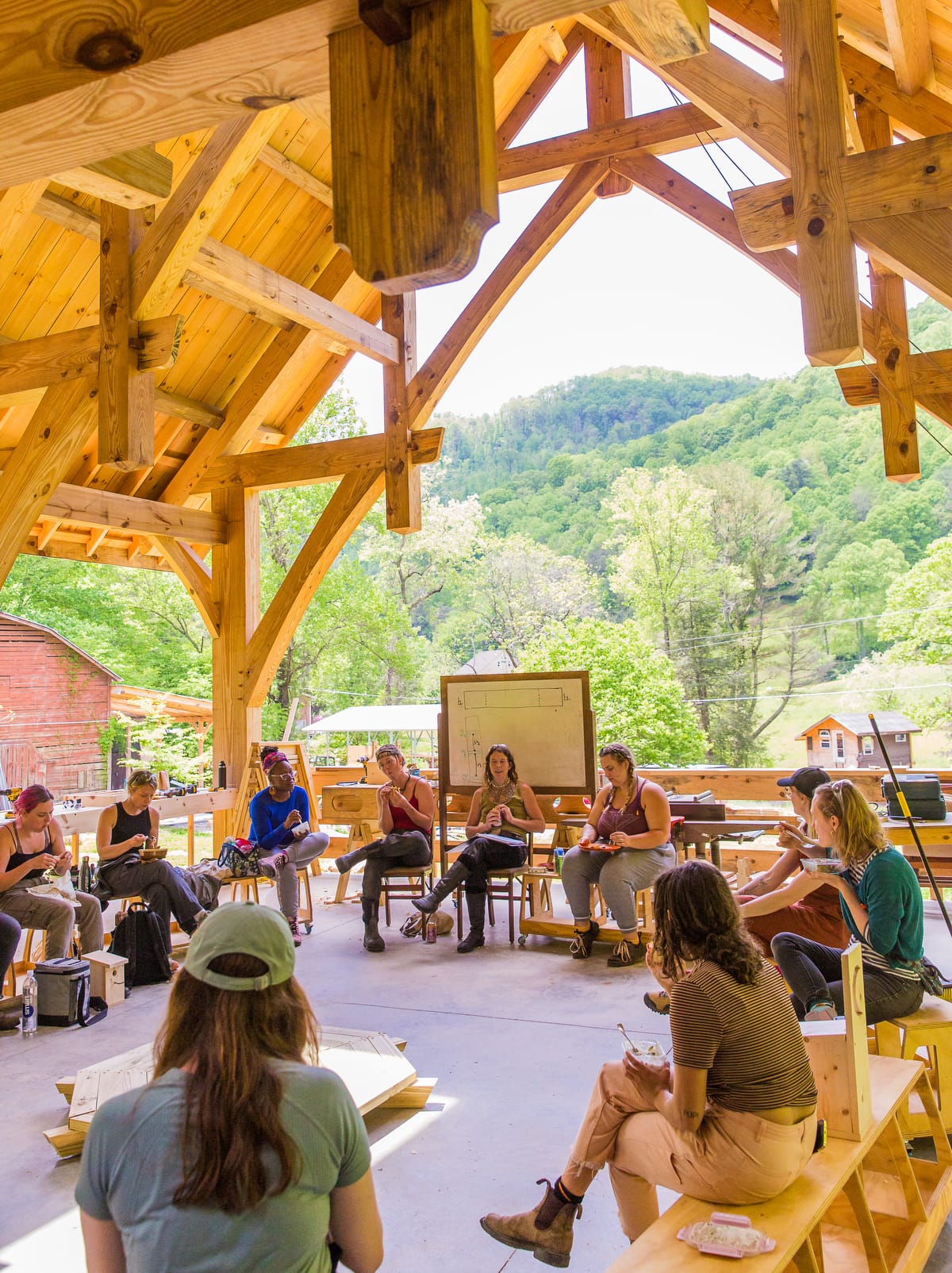
What to Expect: A hands-on tiny house workshop paired with online tiny home building content
A 10-day hands-on tiny house building class, plus an online tiny house library filled with over 50 hours of top-notch instructional videos.
Get ready to learn some serious skills—this is THE most comprehensive tiny home building workshop you’re going to find. That’s because we cover so much material with breadth and depth. To do this effectively, we provide the lecture portions of the class in an online format, leaving the majority of our in-person time to focus exclusively on skills that are best taught and practiced in person.
We offer a hybrid structure that maximizes our time together and provides you with ample take-home resources to consult as you work on your own projects.
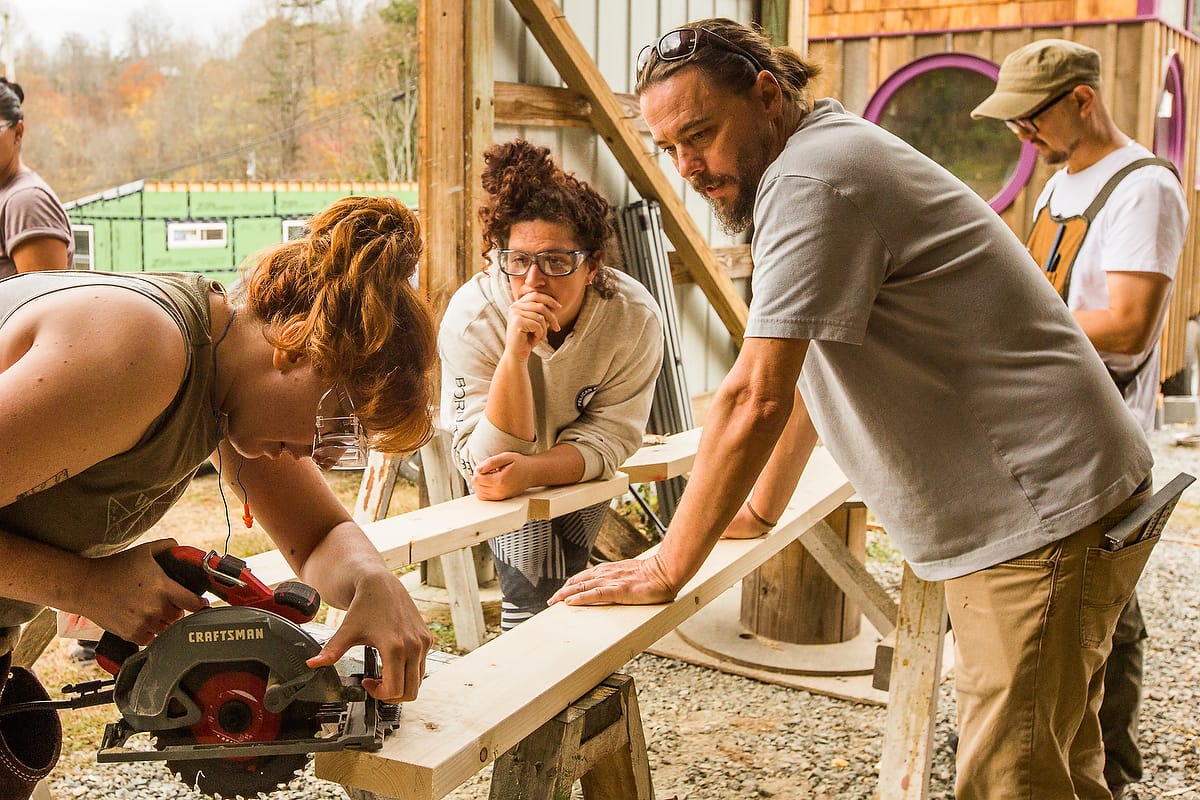
Before the in-person class begins, we’ll invite you to watch online video lessons that directly correspond to what you’ll be applying during the hands-on component of the tiny house building workshop.
All in-person tiny home students receive access to the Online Tiny House Academy as part of their registration.
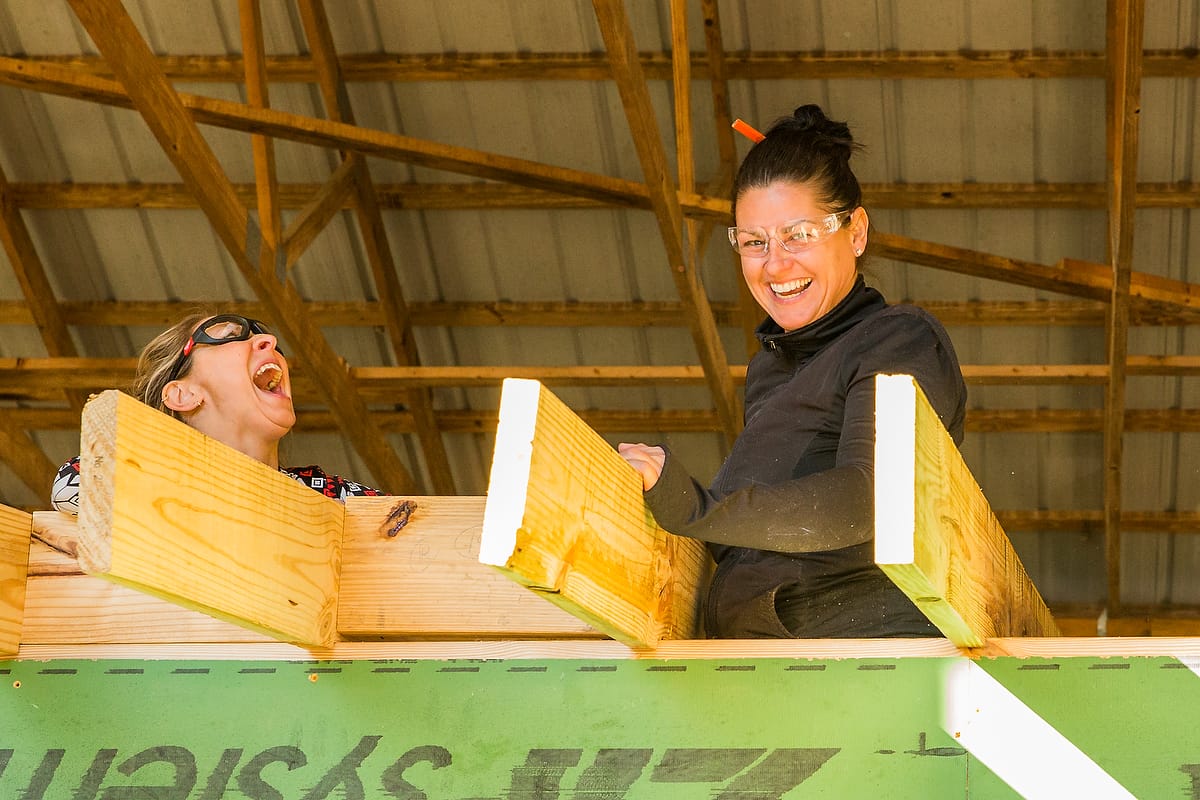
Ready to Join?
Sign up for the waitlist and be the first to know when new sessions open for registration.
You’ll also receive our newsletters
During our time together in person, we’ll show you how to build a tiny home through hands-on learning. You’ll get to work on:
- Pier foundations
- Floor system framing and sheathing
- Framing out and sheathing wall systems
- Erecting wall systems
- Framing out windows and doors
- Roof rafter pitch determination, cutting, and installation
- Wall and roof sheathing
- Window and/or door installation
- Tiny and not-so-tiny house tours
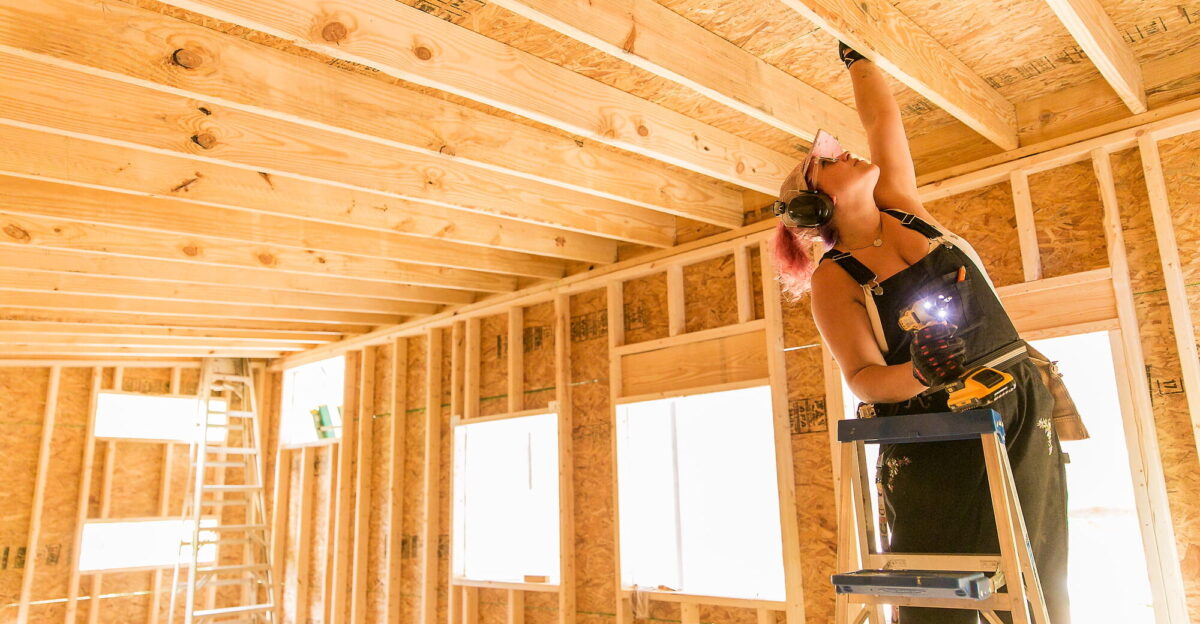
And here’s what you’ll learn in the online portion of our Tiny House Workshop:
- The big picture steps for building a tiny house, or any other building
- Tiny houses on permanent foundations vs. on wheels
- Tools of the trade including: measuring and marking; obtaining plumb, level, and square; power tools; and more!
- Designing your own tiny house
- Building site assessment
- Passive solar design
- Tiny house foundations
- Tiny house floor systems
- Drywall hanging & mudding
- Wood floor installation
- Interior window trim
- Exterior siding
- Metal roofing
- Pros and cons of natural building techniques
- Basics of electrical: theory and install
- Basics of plumbing
- Ecological awareness in building
- Legal considerations for tiny homes
- Tiny and not-so-tiny tours
- And so much more!
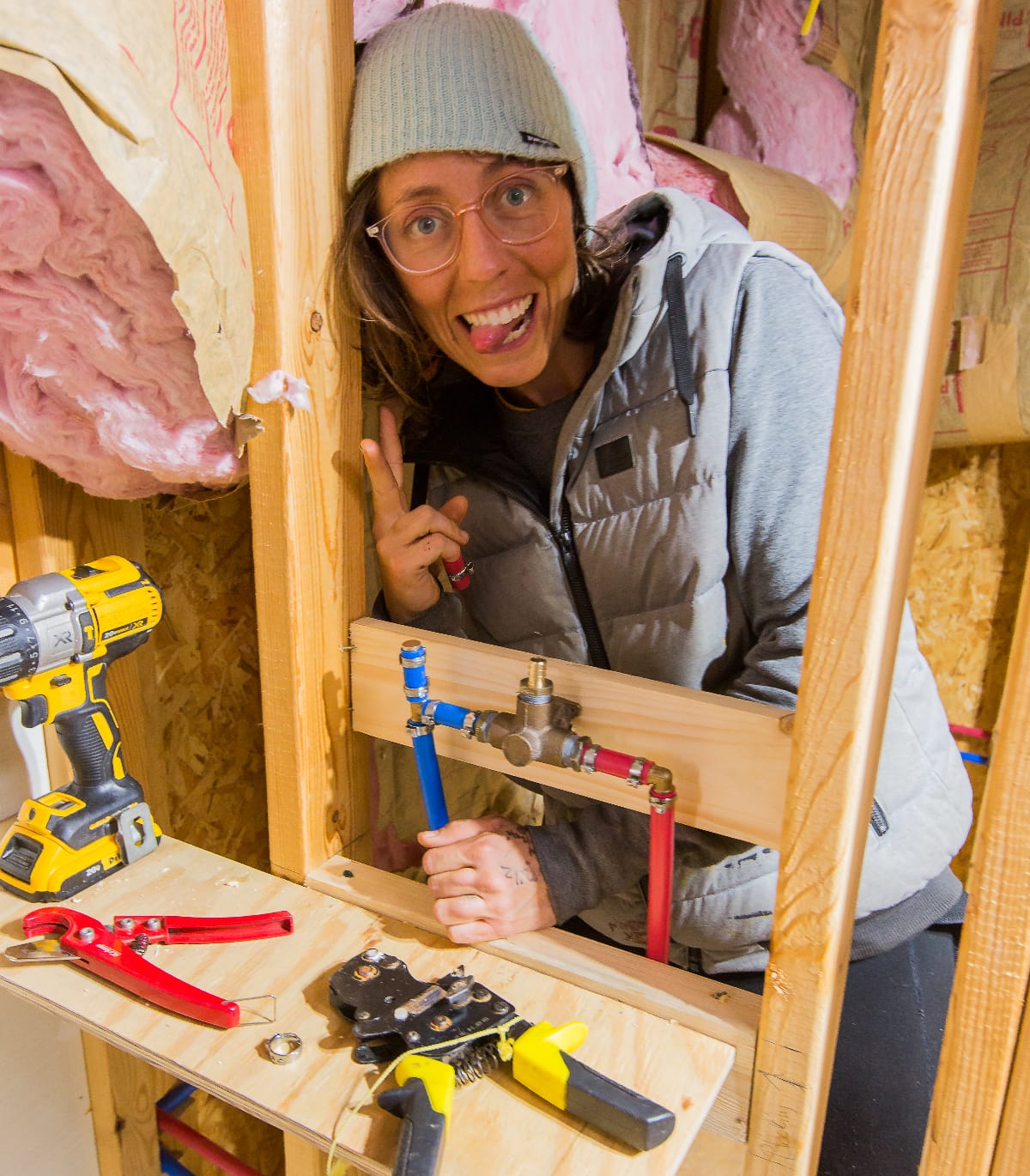
You can get just the online portion through our Online Tiny House Building Workshop
If the in-person class is inaccessible to you for any reason, you can get access to the online portion as a stand-alone class offering. The Online Tiny House Academy is a comprehensive set of tiny house building classes that walks you through each step in the tiny house-building process via on-demand video lessons. These include a ton of how-to’s, along with a library of tutorials, lectures, and demos.
The best part is that you can refer to whatever you need help with again and again, at any time! And, you’ll receive access to one of our lead instructors who will answer your questions via the online classroom in the months following your registration.
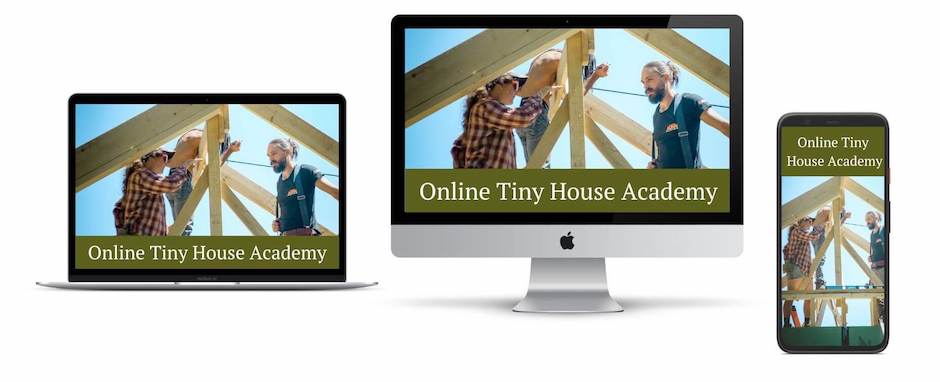
The Online Tiny House Academy is a $787 value, making the in-person Tiny House Workshop an amazing deal. You pay for 10 days of in-person instruction and get the Online Tiny House Academy as a really sweet bonus.
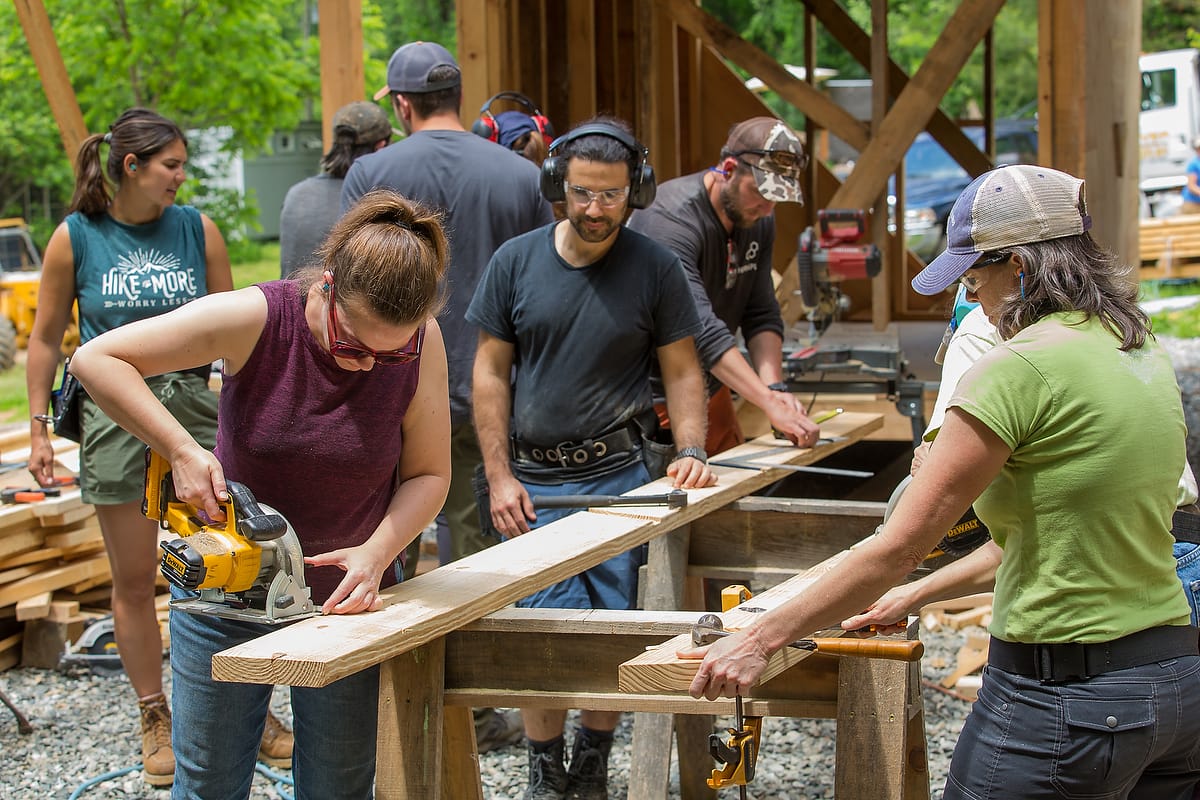
This tiny home building workshop is appropriate whether you’re an experienced builder or an enthusiastic novice.
The Tiny House Workshop is designed for building enthusiasts of all skill levels. If you’ve never used tools before, we’ll dedicate at least a day to getting you up to speed. At the same time, you’ll get more out of the class if you come with some very basic skills, such as knowledge of hand and power tools.
If you’d like a leg up, we offer both Women’s Basic Carpentry Classes and Adult Beginner’s Woodworking Classes, so if you’re a true beginner, consider taking one of these before you participate in the Tiny House Workshop. This isn’t necessary, but it will be enhancing and help you to get deeper into the material. And, if you are not able to take an intro class, the tiny house building workshop will still be an awesome doorway into building.
Basic carpentry skills, including tool use, are included in our Online Tiny House Building Classes, so there’s an opportunity to watch the detailed lessons and get some practice at home before the class. If you’re not sure if you’re ready for this class, please contact us at admin@wildabundance.net and we’ll help you get clear.
Tiny House Workshop Class Schedule
Class starts just after lunch on the first day to give everyone time to arrive.
On subsequent days, the class will meet from 9:30 to 5:30. There will be some optional evening activities, including extra tiny house tours in a rural setting, going out to dinner with classmates, and having campfires at our beautiful outdoor campus.
Due to popular demand from students, over the 10 days of class, there are two half-day breaks to allow you to digest what you’ve learned, explore our beautiful area, and enjoy some rest and relaxation.
We cover all the skills you need to build a tiny house, while moving at a pace that ensures high-quality learning.
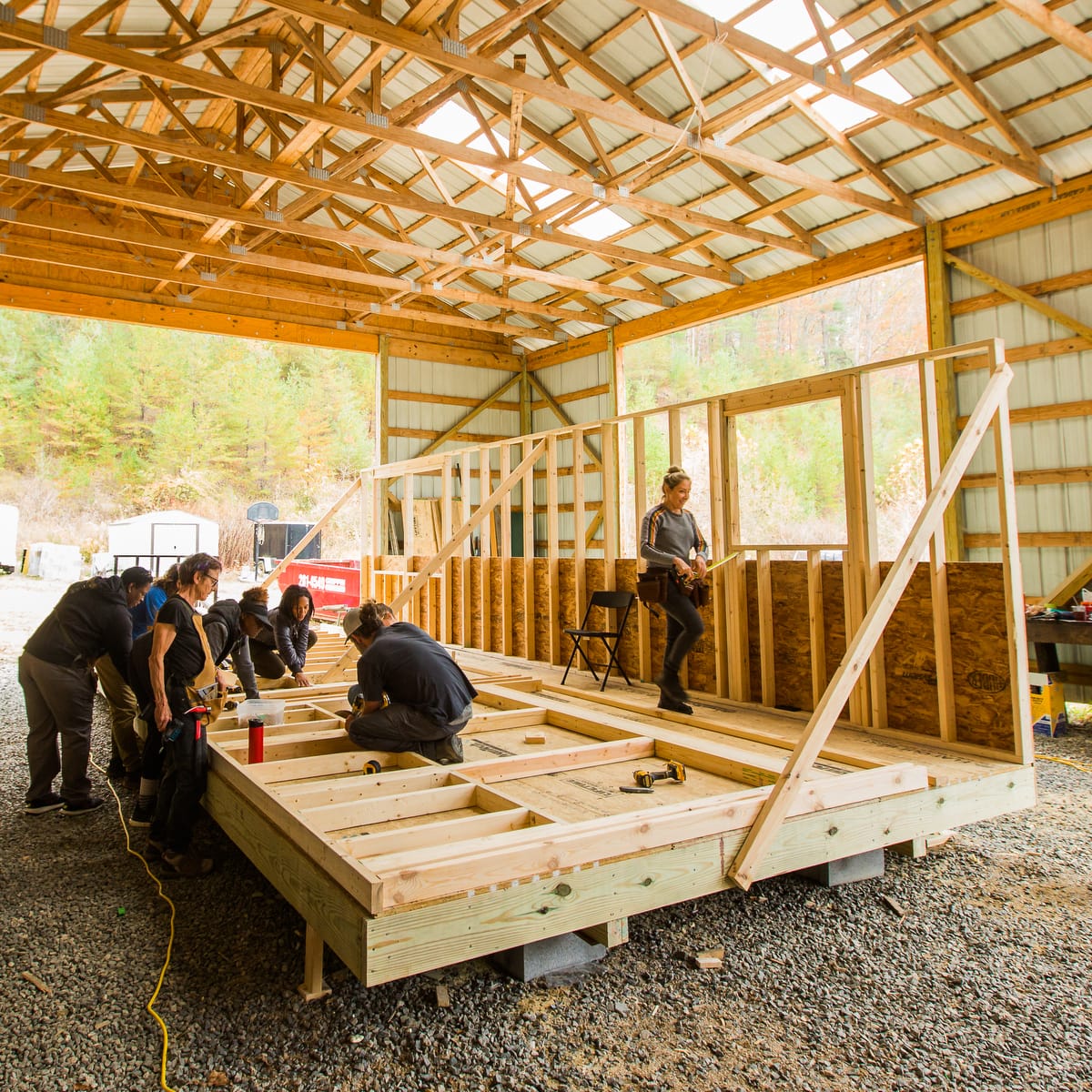
During the first three days of the in-person portion, we’ll divide the class into multiple groups based on skill level. Newbies learn safe and effective hand and power tool use in a small group setting, while more advanced students go on tours and dig into the subtleties of foundations and floor systems.
Those who need tool instruction will get a bit of these other exciting things too, but more advanced students will have more time to sink their teeth in. Everyone gets to learn about and practice the steps for building pier foundations and floor systems—essential elements of tiny house building.
For the remaining seven days, we come back together to build the main project as a team—framing and sheathing a tiny house! During these seven days, students learn to construct and erect walls, build a roof system, and possibly install doors and windows, if we’re able to get that far. Depending on the class size, we may do one build or two.
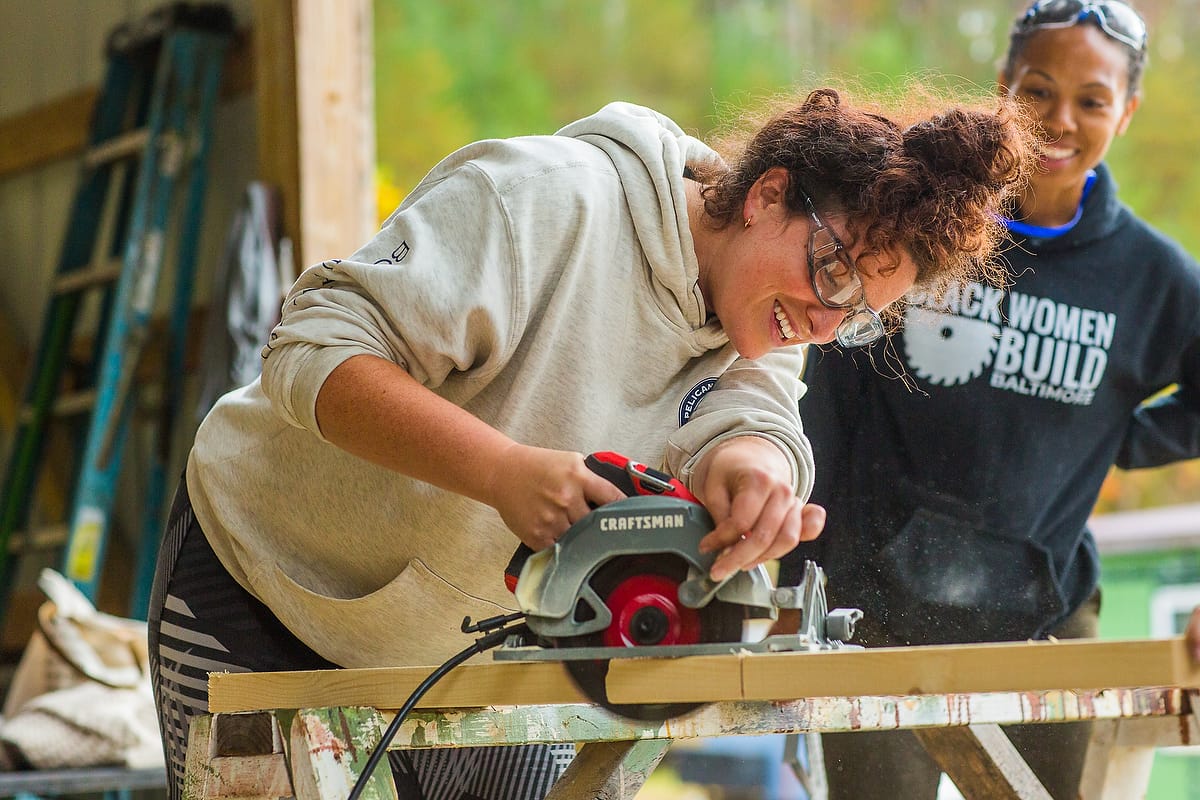
Together, we’ll learn how to build a tiny home from the ground up.
The Tiny House Workshop is a great way to meet other folks who are excited about tiny houses and building for the people, by the people. So many of our students are struck by the sense of community that grows from this workshop.
“The community and friendships that formed with our group during the Tiny House Workshop have been, no exaggeration, life changing. This was an absolutely amazing experience with wonderful people and wonderful teachers.” —Bill, Connecticut
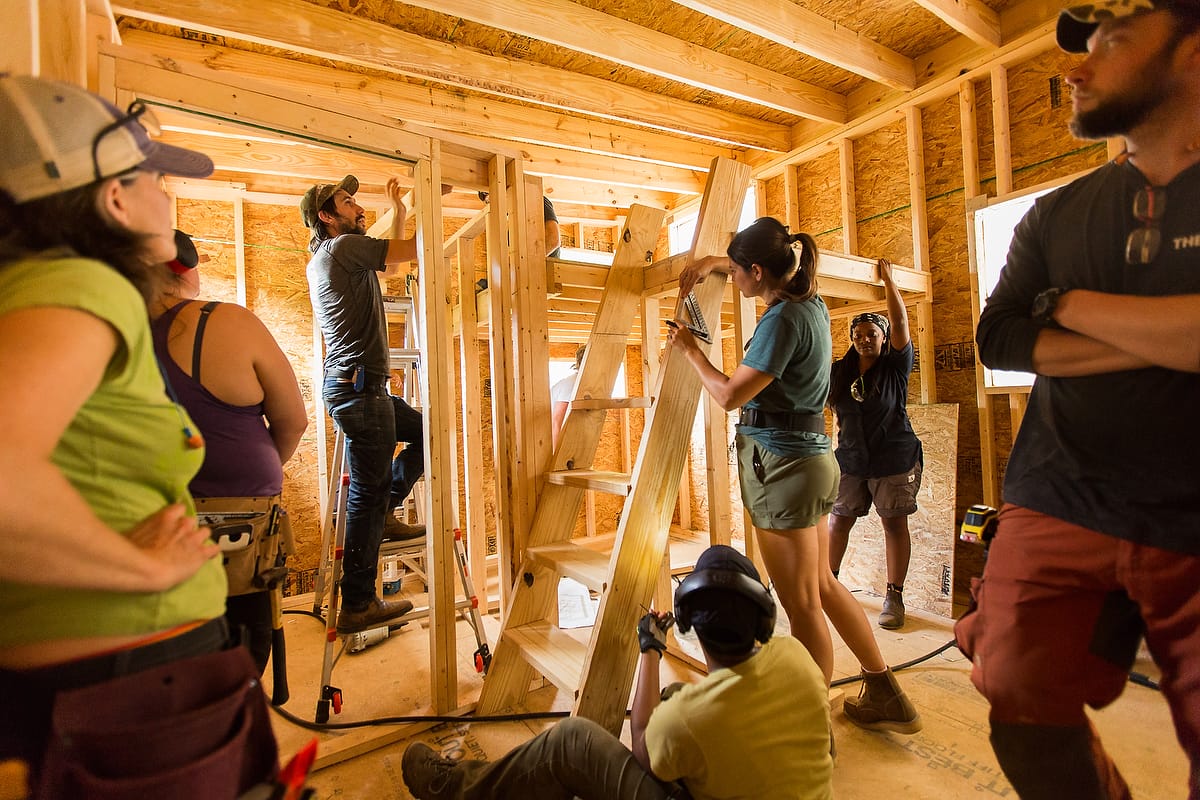
Skills & Subjects We’ll Explore: How to Build A Tiny Home
Our Tiny House Workshop is the most comprehensive program of its kind. Its unique pairing of a 10-day in-person intensive with detailed online instruction makes this class exceptionally thorough. Plus, we’ve refined the workshop to an art after offering it dozens of times over the past 10 years. Following are some highlights of the class (see the above section on What to Expect for a bulleted list of skills and subjects we’ll cover).
Foundations, floors, walls, and roofs – Learn how to build a tiny home or any other structure, starting with the fundamentals
Whatever the size, a building must have a solid foundation for safety and function—even if that “foundation” is a trailer. We’ll explore foundation options in-depth, and also cover floor systems, walls, and roof systems.
All of this information is crucial for building a solid, sturdy tiny house, or any kind of structure, no matter its size. In fact, one of the great things about the Tiny House Workshop is that you learn all the basics of building a house, but in a much shorter timeframe than it would take to build a traditional home.
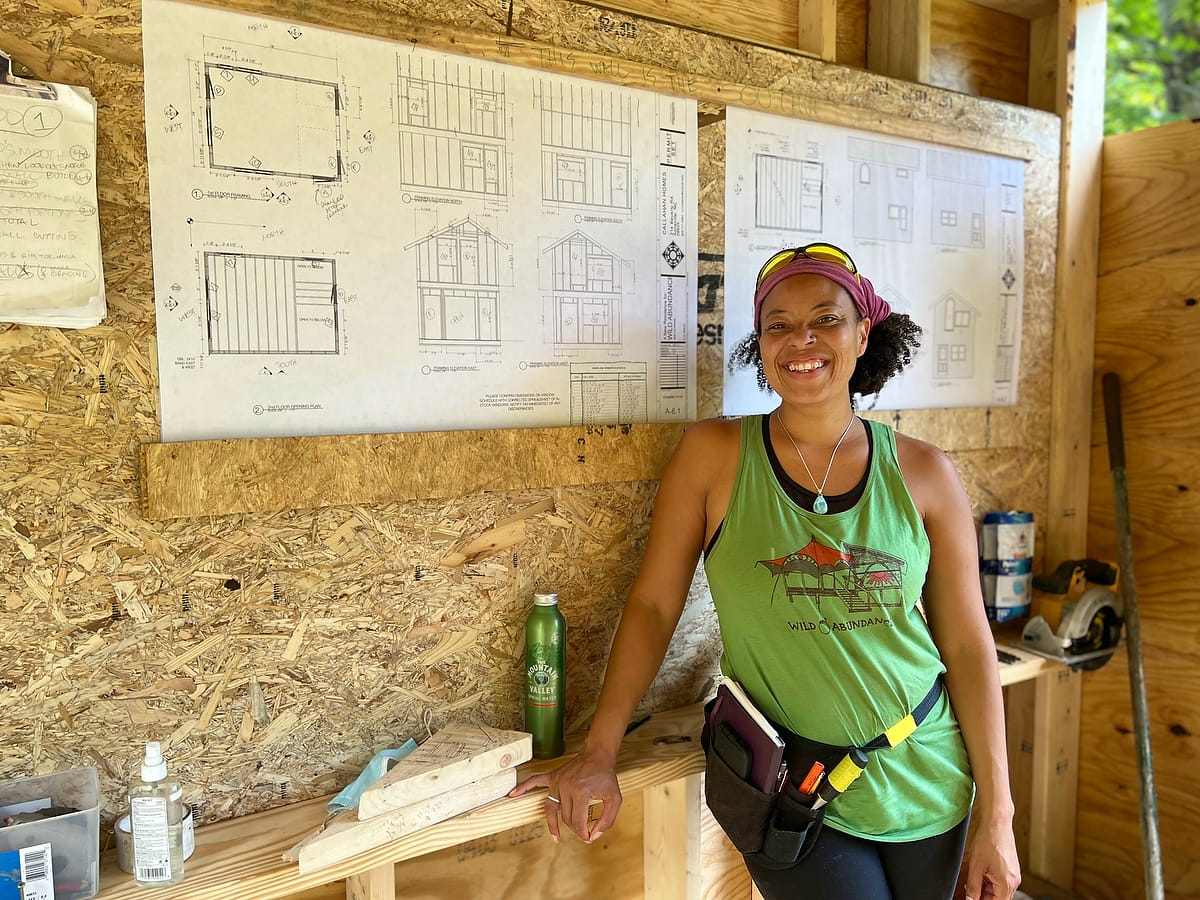
Tiny House Plans & Design
Planning your ideal tiny house takes some skill! And a good design will translate into a smoother building process and more beautiful, liveable, and personalized space. When you sign up for this course, you’ll receive a set of tiny house plans that we’ve created, including a materials list for building the structure with the online content. You’ll also get a set of plans for the house we build together during the workshop AND we’ll empower you to design your own personalized tiny house.
In the Online Tiny House Academy (included with the in-person workshop), we provide an overview of the design process that includes site analysis, sketching, and architectural and construction drawing exercises. We don’t just share cookie-cutter designs with you, but rather teach you the skills you need to create your own customized tiny house design.
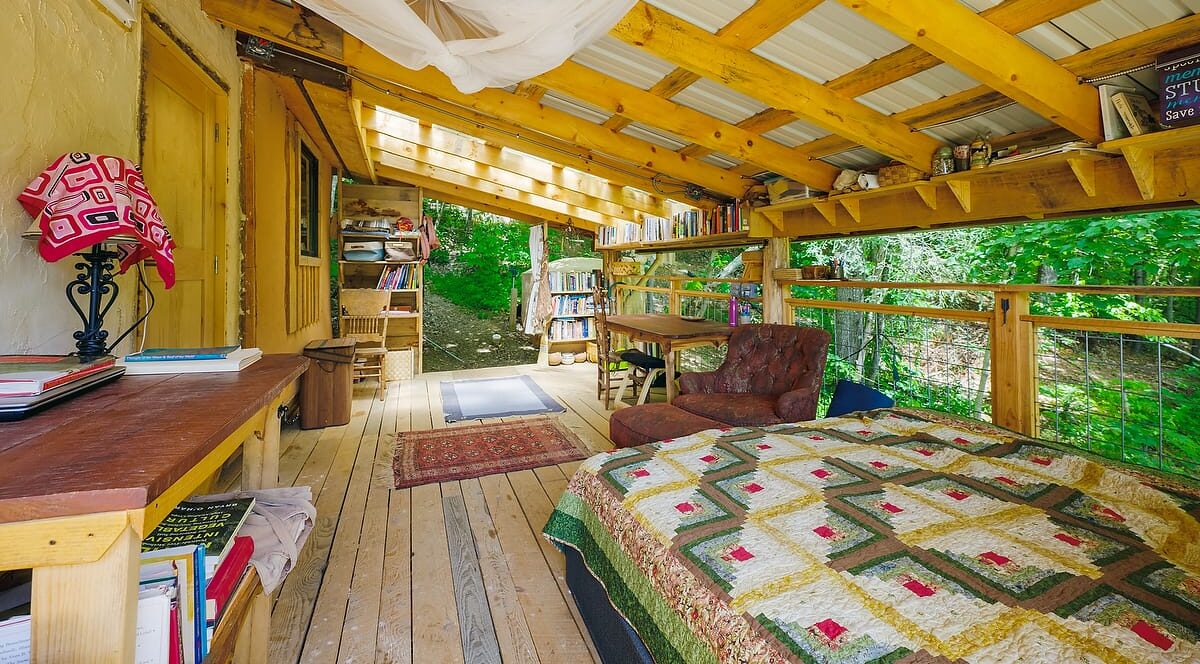
Not-So-Tiny Houses
In addition to true tiny houses, the information you learn in this workshop will apply to not-so-tiny houses (400-900 square feet). We applaud your enthusiasm for downsizing, and really want it to work! For some folks, especially when there will be multiple adults and/or kids living in a home, a not-so-tiny house can be much more appropriate than a truly tiny home.
Along with exploring not-so-tiny house options, we’ll engage in an honest discussion of the pros and cons of downsizing. Central to this is the importance of good design when you’re living and/or working in a small space. Plus, we’ll talk about and check out large covered porches, outbuildings, outdoor kitchens, shared infrastructure, and other strategies that can make tiny house living feel more spacious and doable. Both the hands-on aspects of the class and the lecture subjects will be applicable whether you are building tiny or not-so-tiny!
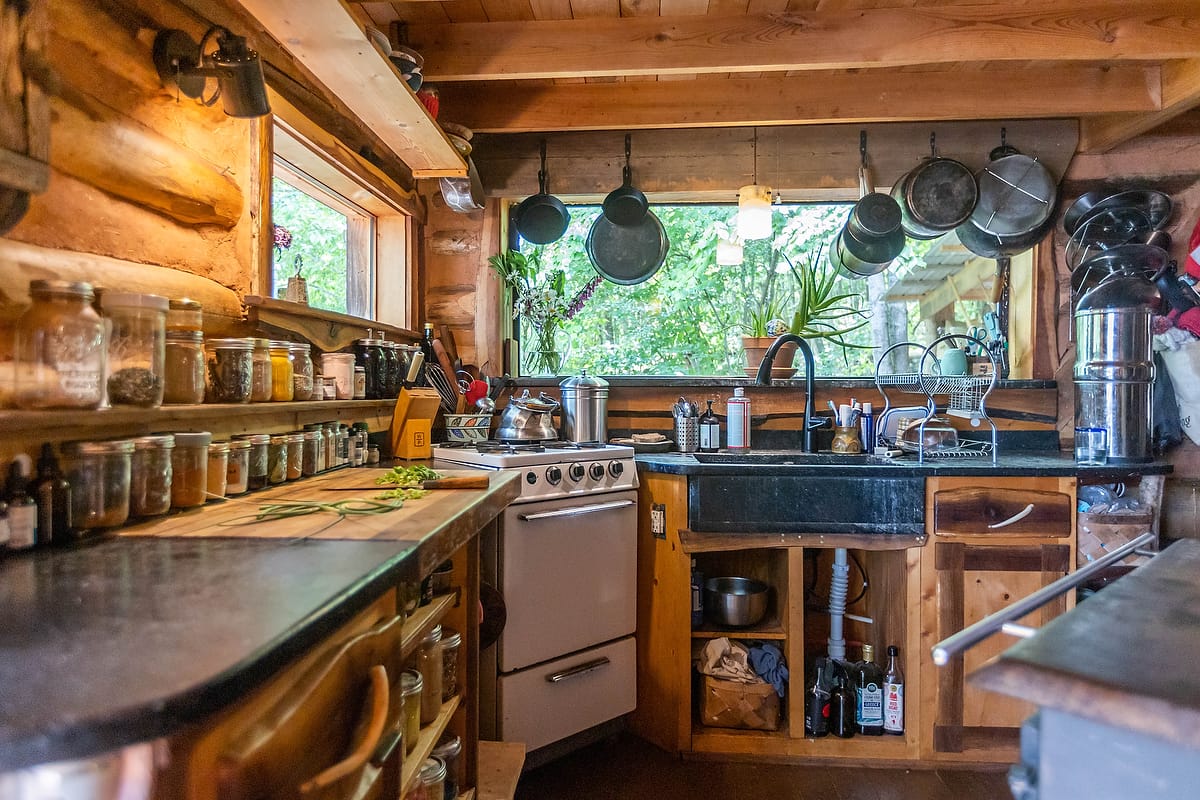
Ecological and Natural Building Considerations
Simply building smaller-footprint houses has a huge ecological benefit in comparison to the average American home. However, the materials that are used can impact sustainability too.
Our founder, Natalie Bogwalker, got into tiny house building through her passions for permaculture and natural building, and has learned and practiced many ecological building techniques over the years. While this is not a natural building course, we do still consider the ecological impacts of our material choices and designs.
The online portion of the class explores the pros and cons of several natural building modalities, which will help guide you toward which of these you might want to consider. Additionally, in the online portion, we discuss regenerative timber harvesting, milling your own lumber, the ecological impact of various building materials, and creative sourcing for up-cycled and lower footprint options.
In the in-person practicum you will also see, touch, and learn about various building styles, including timber framing, log cabin construction, cob, earthen plaster, natural paint, post and beam construction, and passive solar design. Additionally, you’ll see how tiny houses can work in a community setting and can provide a viable option in an area with a housing crisis.
Natural building doesn’t have to be an all-or-nothing endeavor, and this class will help you learn when and how to integrate a practical approach to ecological building.
Save Money by Taking The Tiny House Workshop
We have had countless students let us know that they have actually saved thousands of dollars following through with their tiny house ambitions by taking this class.
Practical Choices for Tiny Houses
There is a lot of hype out there about building tiny houses, and many people claim they can solve all of your problems, in a short amount of time, on an extremely low budget. We’re here to offer an encouraging and supportive voice of reason. Our team has decades of experience, and we’ve tried many of the tricks and shortcuts out there. In other words, everything you learn in this class will not only be cool and inspiring, but also practical and time-tested.
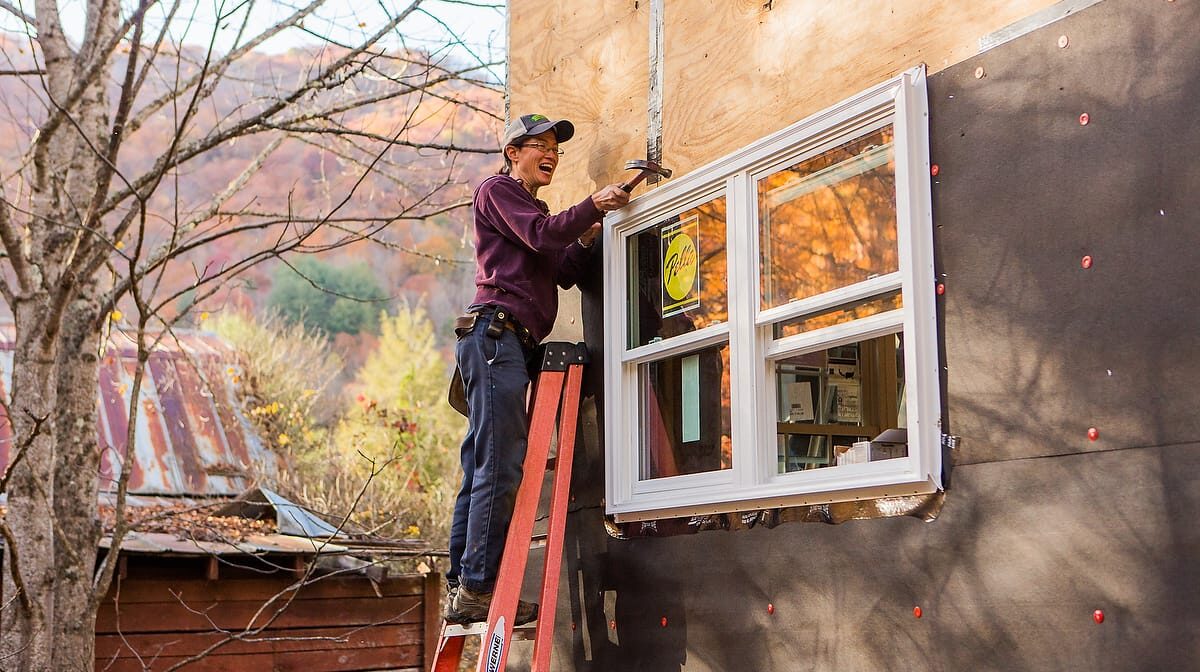
In the online and in-person portions of the class we discuss the real implications of various choices and techniques, including their pros, cons, appropriate applications, and tradeoffs. For example: salvaging materials can save you money, but in some cases you’ll end up paying extra with your time, labor, or exposure to environmental toxins.
We offer guidance on when it makes sense to salvage, and when it’s more practical to buy new, and discuss the practicalities and appropriate use of various natural building approaches and ecological materials.
Our instructors provide lots of guidance, answer questions, and share what they know throughout the class. In fact, the mentorship, camaraderie, and “team spirit” of building together is often our students’ favorite part of the workshop.
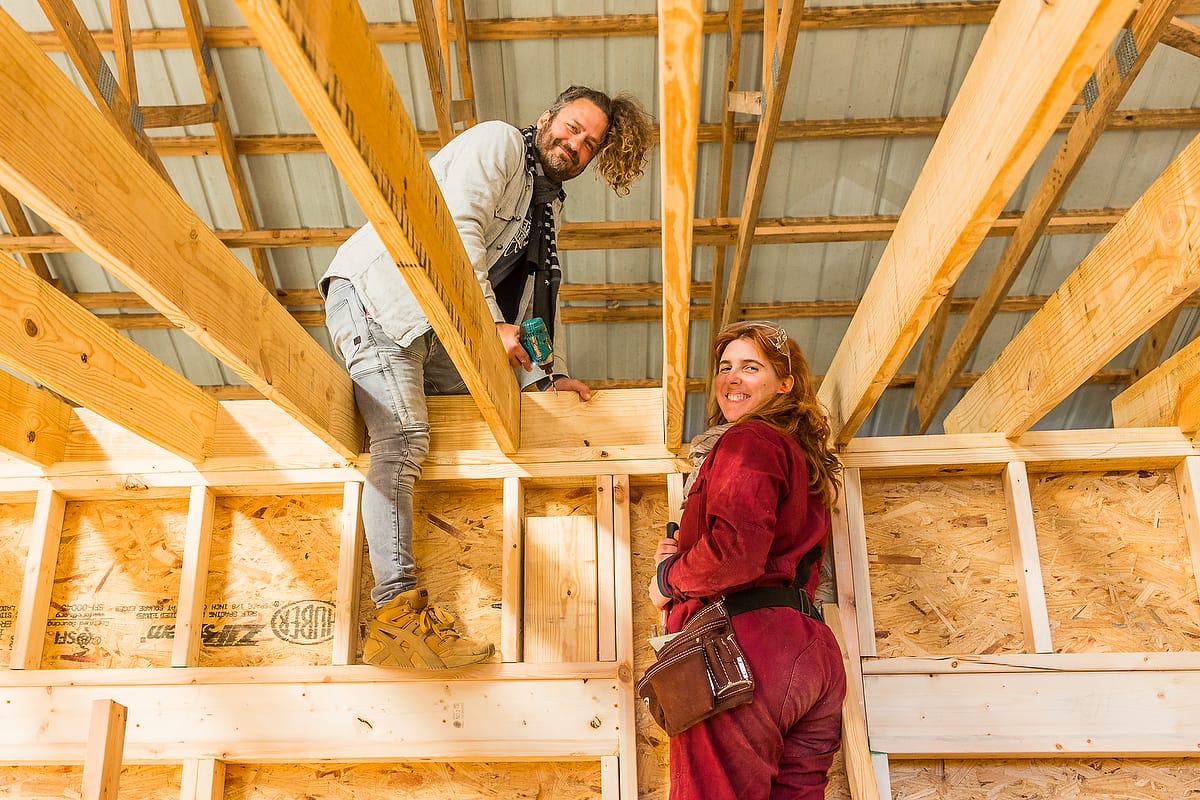
Frequently Asked Questions About The Tiny House Workshop
This class is designed to be accessible to building enthusiasts of all skill levels. For those who have never used tools before, we dedicate at least a day to getting them up to speed. At the same time, more advanced students get to take part in deeper dives into other subjects. Having a basic understanding of tools will help you understand concepts in a different way throughout the class. You will get more out of the class if you come with some very basic skills, such as using hand and power tools, and measuring boards.
We offer both Women’s Basic Carpentry Classes and an Adult Beginner’s Woodworking Class, so if you’re a true beginner, consider taking one of these before you participate in the Tiny House Workshop—not necessary, but enhancing. And, if you are not able to take an intro class, the tiny house building workshop will still be an awesome doorway into building.
Basic carpentry skills, including tool use, are included in the Online Tiny House Academy, so there’s an opportunity to watch the detailed lessons and get some practice at home before the class. If you’re not sure if you’re ready for this class, please contact us at admin@wildabundance.net and we’ll help you get clear.
The Tiny House Workshop is a stand-alone class that’s appropriate for a variety of skill levels. That being said, we offer several different building and carpentry classes, and they fit together beautifully. The Tiny House Workshop is open to everyone, even if you have little or no experience with carpentry; however, if you’re a beginner and you’re able to come for more than one class, you can start with one of our basic classes (women’s basic carpentry classes or adult woodworking classes for beginners) to set a strong foundation ahead of time.
In order to accommodate a range of skill-levels during the Tiny House Workshop, we break out into groups during the first few days and cover basic tool use for those who need it. Please note: these students will miss the most in-depth discussions on foundations and floors, but they will still get to learn about them. Taking a beginner class before the Tiny House Workshop will mean you’ll already be proficient with the tools, so you can join the more intensive foundation and floor lessons.
Along with basic carpentry and tiny house-building, we also offer advanced women’s carpentry. If you’re really wanting to dive in deeply, you can start with a basics class, then take the advanced class, then take the tiny house workshop. If you’re planning to take the advanced carpentry class, we recommend that you take it before the tiny house class, and not after. The more classes you attend, the more comfortable you’ll become with the material, and the more it will stick in your muscle memory.
Yes! The online lecture portion of the workshop includes a discussion of building codes and regulations that are specific to tiny houses. Our focus is on North Carolina regulations and codes, however, navigating them is usually pretty similar wherever you are in the continental U.S.
Good question! The answer is “it depends.” The final costs for the tiny houses that have been built during our workshops have ranged from $6,000 to $44,000. There are many factors that contribute to how much it will cost to build a tiny house including:
- Are you building on a trailer, on skids, or on a permanent foundation?
- What sort of wall system will you choose?
- What kinds of fixtures, like light fixtures and kitchen faucets, will you choose?
- Are you planning to do all of the work yourself or hire people to help you?
- Will you buy salvaged windows or fancy brand-new triple pane windows filled with argon gas?
- Are you planning on buying wood from Lowes or a lumber yard, or are you hoping to mill wood off of your own land?
- Do you plan to use natural building techniques with local materials, or to buy all of your materials?
- Can you work on your tiny house for 10 hours/week or 50 hours/week?
Yes, this year we’re offering several sessions of our tiny house course. If you’re reading this and they’re already full, be sure to get on the waitlist or standby list, in case a spot opens, and to stay up-to-date with any changes. Our Online Tiny House Building Class opens for registration a few times a year, and has a greater capacity for students. Be sure to check that out, too!
There are a lot of tiny house classes out there. Most take place in big lecture halls with 50-200 students and only last two to four days. In these shorter, more impersonal workshops, you may learn a lot of information, but there is next to no hands-on experience or practice, and you definitely don’t build a tiny house from the ground up. In contrast, our Tiny House Workshop is extremely hands-on, along with being informative.
During the 10-day workshop, you actually get to be an integral part of every stage of the initial build of a tiny house. Plus, ours is the only tiny house class (as far as we know) that incorporates ecological building considerations. Additionally, the online lecture and demo portions of this workshop will be yours to keep and refer back to for life. All in all, this class will give you the most tools you need to build a tiny house from the ground up!
Each class will feature a unique blend of our stellar instructors.
Nadi Udros
Pete McKelvey
Jeramy Stauffer
Alex Kilgore
Tyler Lavenburg
Frank Salzano
Mollie Curry
The Tiny House Workshop is held near Asheville, NC at our Paint Fork Campus
Our Paint Fork campus is a bustling creekside landscape with gorgeous mountain views, a breathtaking timber-framed pavilion classroom, and spacious covered open-air wood shops for learning building and carpentry in all weather, plus other lovely features. The Paint Fork campus is 30 minutes north of Asheville.
Please note: our campuses are all unconventional, with rustic amenities and uneven ground. Read more about planning your trip and about our campuses. You’ll receive detailed directions on how to get here upon registration.
You’ve got several options of where to stay during your class. Some students camp, some locals commute, and others choose to rent accommodations with more creature comforts.
Onsite camping (with your own warm bedding and rainproof tent or hammock) is available for free to all students (including locals) during class. Some set-up-for-you tents are available with cots and cozy bedding for a flat fee.
Campers and all students have access to a lovely outdoor kitchen equipped with a stove and hot and cold water, plus pots and pans, knives and cutting boards, bowls, plates, and utensils, along with an outdoor shower with hot and cold running water and an outhouse. If you’d rather rent a hotel, house or cottage, there are many available. We’ll share a curated list of nearby options once you’ve registered.
So you can better plan your trip to come learn with us, here’s some info on accommodations we offer, or that we link to in the student handbook you’ll receive upon registration. Below it you’ll find info on transportation.
- Camping with your own gear: free
- Staying in a large tent with a cozy cot and bedding that we set up for you: $200 flat fee; you can stay there anytime from 5pm before the first day of your class, to 12pm the day after your class ends.
- Hyper-local off-campus single rentals: $40-$2000/night + fees
- Hyper-local off-campus couples rentals: $20-100/person/night + fees
- Hyper-local off-campus group rentals: $25-$86/person/night + fees
Wild Abundance students are given awesome discounts at a local hotel, and a hyper-local inn. More information given in the student handbook upon registration.
Getting a place or renting a car with a group of fellow students and carpooling are great ways to make connections and reduce costs! We share contact info for each class so you can get in touch and make plans together. Everyone has a chance to keep their info private if they choose.
You won’t need a car during your class. There’s a chance you may want to run an errand or go out to dinner with fellow students, and if this happens, it’s highly likely that another student with a car will be happy to give you a lift.
We’ve also got a list of folks who will do airport and grocery shuttle runs for $50-$80 each way. We share this information in the student handbook when you register. If you’d rather rent a car, those run anywhere from $45-$200/day. Just like with lodging, teaming up with a group of fellow students to share a car rental can help build connections and reduce costs.
All students will be at the Paint Fork Campus (with some field trips) for the first 3 days of the program. During the last 7 days of class, students in most of the classes will stay at the Paint Fork Campus for their builds. With larger groups, we’ll split into two groups for two unique builds. For a few of these classes, students will have the option to do their build at Paint Fork, or go to Nanostead (our sister campus in Marshall, NC, about 30 minutes from Paint Fork).
If you’re in one of our larger classes and have a strong preference to be at either our Paint Fork or Nanostead location, you’ll have the opportunity to choose—our staff and instructors will be able to accommodate your choice. Location details will be made very clear in the info you receive upon registration, and there will also be an online welcome call for any questions.
If you will not have a car with you, and are camping, we recommend that you stay at the Paint Fork Campus for your build.
Pricing for the Tiny House Workshop
Regular Pricing: $1,950 – $3,900
*Please pay what you can within this range. The median price helps cover the class costs. Choose the low end if you’re low income, or the maximum fee if your household earns over $115,000/year. Place yourself within this range based on your income.
All lectures will be online; hands-on content will be in-person and outdoors.
